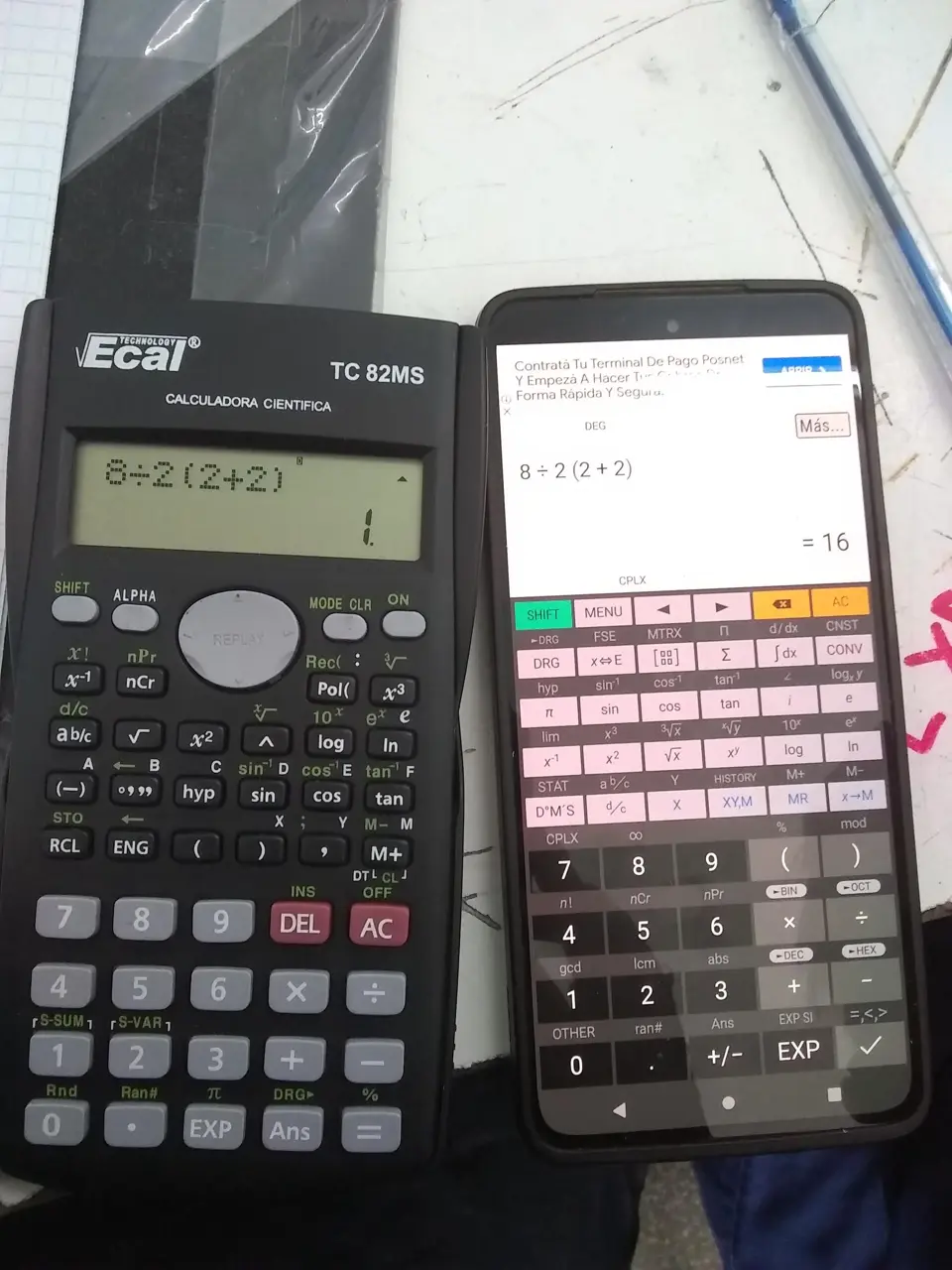this post was submitted on 03 Dec 2023
389 points (95.6% liked)
196
16801 readers
2296 users here now
Be sure to follow the rule before you head out.
Rule: You must post before you leave.
founded 2 years ago
MODERATORS
you are viewing a single comment's thread
view the rest of the comments
view the rest of the comments

Exactly! 2(2+2) is a Term subject to The Distributive Law
But it isn't. It's X/YZ.
I put back the brackets that you had prematurely removed when you wrote 8/2x4. You can't remove brackets unless there is only 1 term left inside. 2(4)=(2x4)=(8)=8. When you removed the brackets prematurely you flipped the 4 from being in the denominator to being in the numerator, hence the wrong answer.
Yes they were. The original equation is 8/2(2+2).
Considering how conflicting and confident we are that we are both correct, clearly there's an issue with order of operations and how brackets work. Otherwise this wouldn't be such a debating issue. We were taught that 2(2) is the same as 2x2.
It's not in debate in any Maths textbooks, which is something none of the people claiming ambiguity ever reference.
It's the same as (2x2), which is 1 term, not 2x2, which is 2 terms, which is why you can't prematurely remove the brackets. See worked example in this textbook...
OK, so in that picture you sent, the bottom part of it where it says you multiply the brackets by the number preceding it. Take that and put it to the right of the devision equation.
If you just put those numbers into brackets you'll also have to put 8/2 in brackets as well. Then it's (8/2)x(2+2). The answer is 16. Your way the answer is 1. Which is wrong.
Yes, the answer to that is 16, which isn't the same as 8/2(2+2) (since you added a multiply to it and changed the expression).
No, 8/2 is two terms. I see you didn't read the link about Terms then. If you put 8/2 into brackets, then you just changed the expression, and thus also the answer. According to your logic - add more brackets to the left - 4+8/2(2+2)=(4+8/2)(2+2)=32
My logic is to not add brackets randomly. The equation is 8/2x4. That's it. 2(2) is not (2x2). It's 2x2. The flaw in this equation is that 2(2) is not a proper syntactic equation and is correctly assumed as 2x(2). That's where you're getting confused. If you want to send links and resources here's a link to an EDU article on it, as well as teacher explaining it in a video. Hope this helps and settles this conversation.
https://www.sfu.ca/education/news-events/2022/september-2022/the-simple-reason-a-viral-math-equation-stumped-the-internet.html#:~:text=As%20such%2C%20for%20the%20record,debate%20in%20the%20first%20place
https://youtu.be/Cv4ANWJXnqI?si=yYFB4twOzWVOG-gE
The equation is 8/(2x4) - you removed brackets prematurely, violating The Distributive Law
So I see you didn't read the link earlier about The Distributive Law. Try reading it this time around.
I'm not confused at all - I teach this subject and it's what's in every Year 7 Maths textbook. Again, try reading my links.
No, it doesn't, because that's doing division when there's still unsolved brackets, which violates order of operations rules.
Paraphrasing "We forgot about The Distributive Law".
Paraphrasing "We also forgot about Terms". Literally no textbook does what they just said.
Random people ignoring what's in Maths textbooks in regards to a Maths equation would settle it? BWAHAHAHA!
Let me know when you read the links with actual Maths textbooks quoted. Bye now.